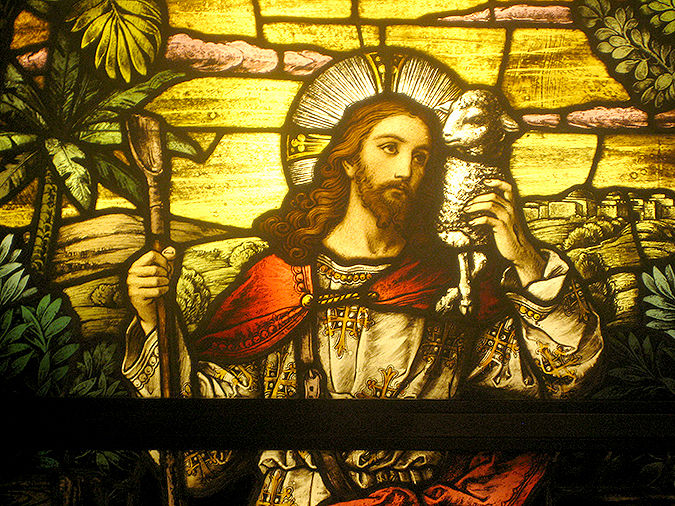The basic questions we face in our lives are all about how we should live.
What should we value and what should our priorities be? What should concern us and what should we be living for?
The Beatitudes are the answer that Jesus gives us to these basic questions. In the Sermon on the Mount in St. Matthew’s Gospel, he is telling us what kind of people we should be. The answer is that we should live as he lived.
At the center of his Beatitudes, the fifth of the eight that he gives us, we find this: “Blessed are the merciful.”
Mercy is like the “hinge” that opens the door to the beautiful mystery of who God is calling us to be.
The Beatitudes not only describe, they command. The Beatitudes are the attitudes and actions that Jesus expects, if we want to call ourselves Christians.
So mercy is our “work,” our daily task. Mercy is our faith working through love.
Mercy in practice means having compassion for everyone, and in a special way for those Jesus identified with — the poor, the sick, the prisoner and the stranger. Mercy means serving others with love — with our hearts always open to their needs, their hurts, and their longings.
The merciful one seeks to free others from their misery — whether their misery is caused by cruelty, misfortune, social injustice, or their own sin and weakness.
Mercy makes us brothers and sisters to everyone and neighbors to those in need. That’s the lesson of Jesus’ parable of the Good Samaritan.
And again and again in the Gospels, Jesus teaches that the mercy we seek from God must be the mercy we show to others.
He doesn’t mean that God’s mercy is a “reward” for our mercy. He’s not saying that our mercy “requires” or obligates God to show us mercy.
St. James said mercy triumphs over judgment. That’s what Jesus is talking about. We love because he first loved us. And we have mercy because he first had mercy on us.
We are unworthy servants, Jesus tells us. But God in his love shows us mercy. When we fall, he is there to lift us up, to put us back on the right path. Our God is the God of second chances and new beginnings.
Mercy is the way of God, who is the Father of mercies. So mercy must be our way as the children of God. And mercy must be the way for the Church.
In Jesus, we see that God’s mercy is “missionary.”
Think of his life and mission, which he described in his beautiful parables of the lost sheep, the lost coin, and the Prodigal Son: “While he was still a long way off, his father caught sight of him, and was filled with compassion. He ran to his son, embraced him and kissed him.”
Mercy is the face of God and the heart of Christ’s Gospel. Through Jesus, God in his mercy comes to seek out the lost and to save them. And he rejoices when he finds them.
Jesus calls us to be merciful on earth as our Father in heaven is merciful.
Mercy starts in the heart and is practiced in deeds. In acts of kindness — and especially acts of forgiveness. God delights in mercy, and so should we. God loves to forgive us, so we should love to forgive others.
Every day we have many chances to forgive the wrongs that others do to us. When we forgive others, we’re not forgetting their sins. Mercy never excuses injustice.
When we forgive others, we trust that judgment belongs to God and that God’s love for sinners is stronger than their sin. When we are merciful, we love with the freedom of those who have known God’s forgiveness. When we are merciful, we refuse to submit to injustice but rather fight it with truth and love.
God never turns sinners away, and neither can we. We need to reach out to them, take responsibility for them and accompany them. We need to always be finding new ways to bring people back to God — especially those closest to us.
Our mercy should be gracious, not grudging; our first reaction, not our last resort. This is a lesson for each of us in our own lives and ministries. And this is a lesson for the Church.
So this week, as we cross the halfway point in our Lenten journey, let us pray for one another. That we might all become the people God wants us to be, people of the Beatitudes.
And let’s ask our Blessed Mother Mary, the Mother of Mercy, to help us grow in mercy.
Archbishop Gomez’s book, “Immigration and the Next America,” is available at the Cathedral Gift Shop (www.olacathedralgifts.com/immigrationandthenextamericarenewingthesoulofournation.aspx). Follow him at www.facebook.com/ArchbishopGomez.

